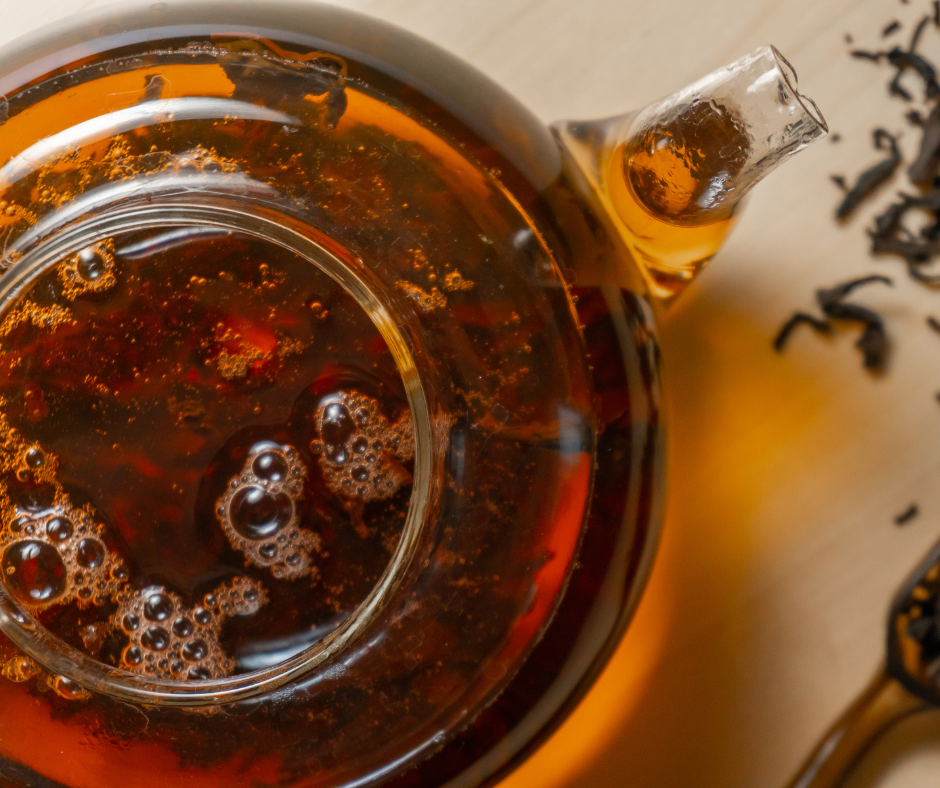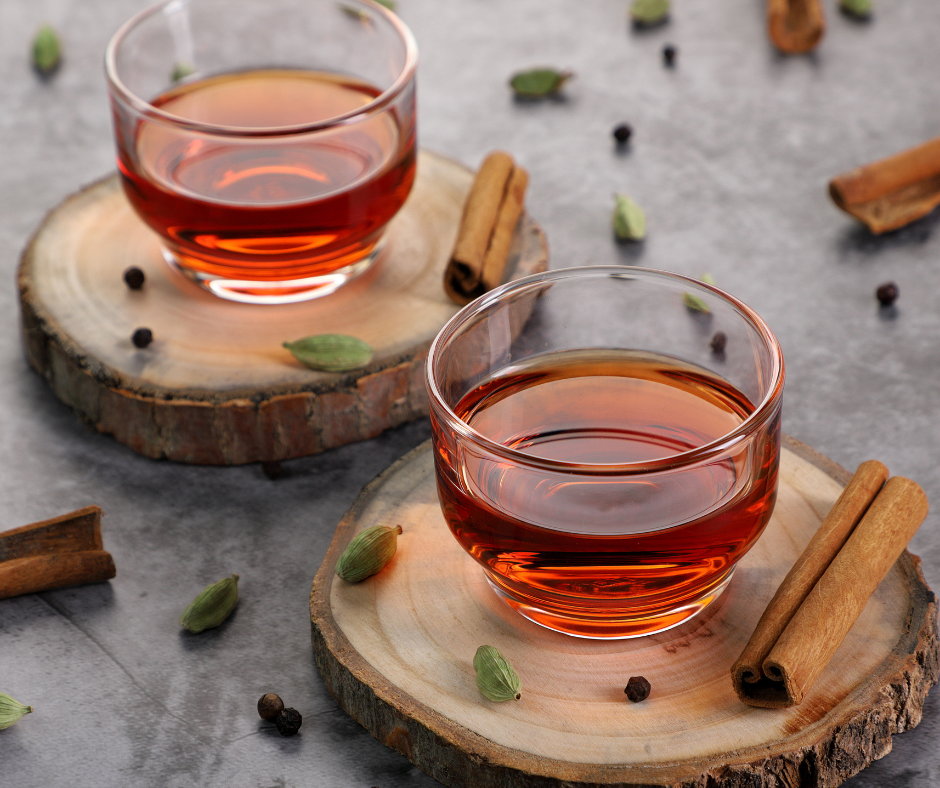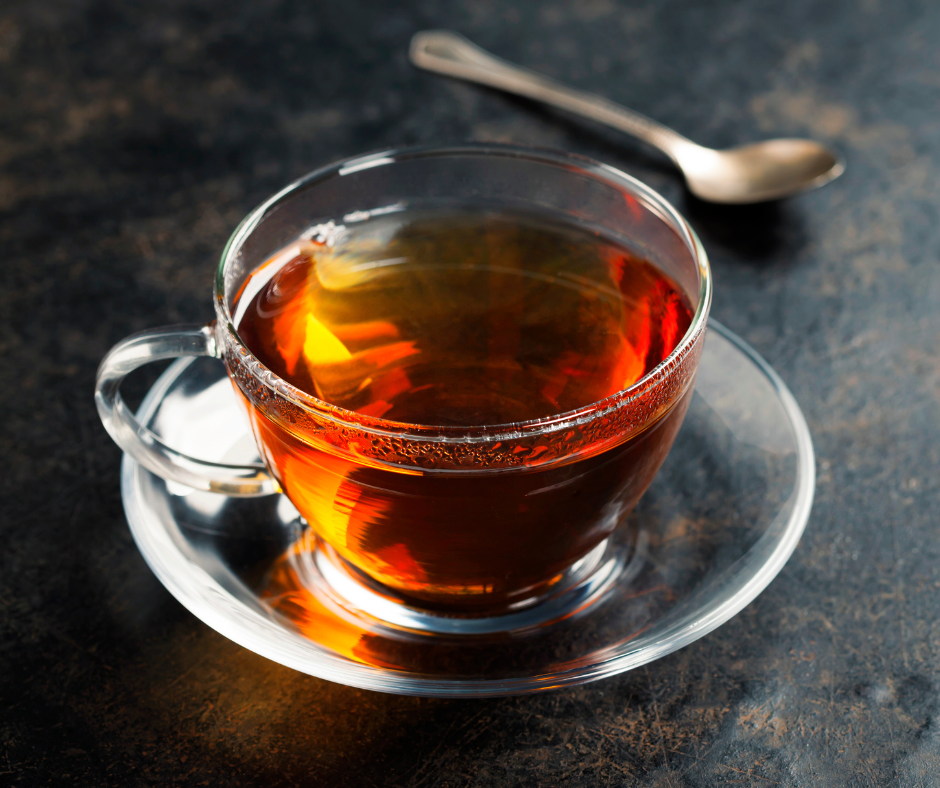Introduction
Black tea is a popular beverage worldwide, second only to water in consumption. It is derived from the leaves of the Camellia sinensis plant and can be enjoyed in its pure form or blended with other ingredients for added flavor. Kenya is one of the largest producers of black tea, known for its robust and deliciously tempting taste. In this blog section, we will discuss the Black Tea Taste, why black tea is favored by tea drinkers worldwide, its benefits, and how to enjoy it to the fullest.
Why Black Tea Is Favored By Tea Drinkers Around The World
Black tea is famous for its rich, bold flavor and aroma. The various flavors and blends available highlight the versatility of black tea. It can be consumed in hot and cold forms, making it an all-season drink. The most popular blends include Earl Grey, Chai, Assam, and Darjeeling. Black tea is the go-to choice for people who like a strong and robust tea taste with a little bitterness.
Benefits Of Drinking Black Tea
Black tea has many health benefits as it is packed with antioxidants that help boost immunity. It also benefits people with hypertension and cardiac disorders, as black tea lowers blood pressure levels. The antioxidants in black tea are known to improve heart health, reduce cholesterol, and aid digestion. Regular consumption of black tea helps to reduce stress and promote relaxation, leading to better sleep quality.
In conclusion, black tea has become a staple beverage globally due to its versatility, taste profile, and numerous health benefits. Tea enthusiasts worldwide can enjoy black tea’s robust and full-bodied flavors in pure form or blends that cater to their palates. Drinking black tea regularly provides several health benefits, making it a healthy, flavorful choice.
Characteristics Of Black Tea Taste
Classic Unflavored Black Tea Taste
Classic unflavored black teas are often described using bold, malty, earthy, and smoky flavor notes. Black tea has the strongest and boldest flavor compared to other tea types. The color of the brewed liquor ranges from amber to red to dark brown, and its flavor profile can vary from savory to sweet and from bitter to smooth. The flavor notes in black teas are diverse, and some are flowery, malty, spicy, or nutty.
Factors Affecting The Black Tea Taste
The Black Tea Taste is affected by several factors, including:
- Oxidation level: Black tea is fully oxidized, contributing to its bold taste.
- Temperature and steeping time: The hotter and longer the steeping time, the stronger the flavor.
- Origin: Different regions produce black tea with distinct flavors, such as Assam, Kenya, and Darjeeling.
- Blend: Black tea can be blended with other ingredients like spices, herbs, and fruits, resulting in unique flavor profiles.
In conclusion, black tea has a robust and full-bodied flavor unmatched by other teas. The taste of classic unflavored black teas is often described using bold, malty, earthy, and smoky flavor notes. Several factors affect the Black Tea Taste, including oxidation level, temperature, steeping time, origin, and blend. Understanding these factors can help tea drinkers appreciate the richness and diversity of Black Tea Tastes.
Famous Black Tea Producing Regions
China: Birthplace Of Tea With Diverse Range Of Black Tea Varieties
China is well-known for its tea and tea culture, and among the six major tea categories, black tea holds a significant place. The birthplace of tea, China boasts a diverse range of black tea varieties, each with unique characteristics and flavors. Some of the prominent black teas from China include:
Keemun Black Tea
Also known as Qimen Hongcha, Keemun black tea is a famous premium tea with a rich and sweet taste. It is grown in the Huangshan Mountains in Anhui Province and is among the most popular Chinese black teas. Keemun black tea has a complex flavor profile with fruit, floral notes, and smoky undertones.
Other Notable Black Teas
Apart from Chinese black teas, there are several renowned black teas from other regions, such as:
India: Home Of Assam Tea, Known For Its Robust Flavor
The Assam region in India is famous for its production of black tea. Assam tea is known for its robust flavor, rich aroma, and deep amber color. It is also commonly used in blends for English Breakfast tea. Apart from Assam, the Darjeeling region in India also produces some of the finest black teas in the world.
Sri Lanka: Renowned For Its Signature Ceylon Black Tea
Sri Lanka, formerly known as Ceylon, is renowned for its production of black tea. Ceylon black tea is rich with a unique flavor and goodness formed by the varying terroir of Sri Lanka’s tea-growing regions. It is scientifically proven to have health benefits and is one of the best black teas in the world.
In conclusion, China, India, and Sri Lanka are some of the world’s most prominent black tea-producing regions, each with its unique varieties and flavors. Tea lovers can explore the diverse black tea options and find their most enjoyable cup.
Types Of Black Tea
Darjeeling: Floral And Delicate
Darjeeling tea, cultivated in the Himalayan foothills, is known for its delicate fruity aroma and musky-sweet flavor. It has a gentle floral scent that enhances its overall appeal. This fruity floral tea is a popular black tea blend that is full-bodied and elegant.
Assam: Strong And Malty
Assam, located in India, is a popular black tea region known for its robust flavor, rich aroma, and deep amber color. Assam black tea is commonly used as a base for blends such as English Breakfast tea, and it has a malty flavor that is strong and full-bodied.
Keemun: Smooth, With Hint Of Smokiness
Keemun black tea, grown in the Huangshan Mountains in China’s Anhui Province, is a premium black tea with a rich and sweet taste. It has a complex flavor profile with fruit, floral notes, and smoky undertones. Keemun black tea is smooth and enjoyable, with a hint of smokiness.
Lapsang Souchong: Bold And Smoky
Lapsang Souchong, also grown in China, is a black tea with a bold and smoky flavor. It is known for its unique smoky scent and taste, achieved by drying the tea leaves over pine wood fires. This distinctive black tea can be an acquired taste but is favored by many enthusiasts.
In conclusion, black tea offers diverse flavors and characteristics, and different regions produce unique varieties. Darjeeling, Assam, Keemun, and Lapsang Souchong are just a few of the popular black tea types available. Tea lovers can explore the world of black tea and find their perfect cup.
How To Brew The Perfect Cup Of Black Tea
Black tea is a beloved beverage with diverse flavors to explore. Each type of black tea has a unique aroma, taste, and brewing requirements to bring out its fullest potential. Here are some tips on brewing the perfect cup of black tea.
Water Temperature And Steeping Time For Different Types Of Black Tea
The first step to brewing the perfect cup of black tea is selecting the right type of water. It’s best to use fresh, cold water that has not been previously boiled or over-oxygenated. The water temperature and steeping time will differ depending on the type of black tea you’re brewing. Here is a general guide for some popular types of black tea:
- Darjeeling: Water temperature should be between 195°F and 205°F, and steeping time should be 3-4 minutes.
- Assam: Water temperature should be between 212°F and 220°F, and steeping time should be 3-5 minutes.
- Keemun: Water temperature should be between 185°F and 195°F, and steeping time should be 3-4 minutes.
- Lapsang Souchong: Water temperature should be between 180°F and 200°F, and steeping time should be 2-3 minutes.
Methods Of Brewing And Serving Black Tea
There are several methods to brew black tea, including using a teapot, infuser, or tea ball. To bring out the full flavor and aroma, it’s recommended to use loose-leaf tea instead of tea bags. It’s essential to measure the tea leaves accurately according to the instructions on the packaging to ensure a consistent flavor profile.
Once the tea is brewed, it’s time to serve. Some people enjoy plain black tea, while others add milk, sugar, honey, or lemon. It’s essential to experiment with different flavors to find your perfect cup.
In conclusion, brewing the perfect cup of black tea is an art that requires patience, precision, and a keen sense of taste. By mastering the water temperature, steeping time, and brewing methods, you can unlock the full flavor potential of the diverse range of black tea varieties.
Health Benefits Of Black Tea
Black tea is a popular worldwide beverage for its diverse flavors: bold, robust, floral, fruity, subtle, and nuanced. However, it’s not just the taste that makes black tea so appealing; this beverage is also linked to various health benefits found in studies.
Antioxidants And Other Beneficial Compounds In Black Tea
Black tea is rich in polyphenols, natural compounds that act as antioxidants in the body and fight free radicals that can damage cells and contribute to inflammation. The specific types of polyphenols found in black tea include catechins, theaflavins, and thearubigins, each with its health benefits.
One study of rats showed that theaflavins and thearubigins found in black tea may help reduce cholesterol and blood sugar levels, potentially reducing the risk of diabetes. Another study found that catechins from oolong tea may help with weight management.
Positive Effects On Cardiovascular Health, Brain Function, And More
Several other studies have linked black tea consumption with positive effects on cardiovascular health, including the ability to lower blood pressure and reduce the risk of heart disease. Additionally, black tea may help improve brain function, reduce the risk of certain types of cancer, and improve gut health.
To get all the potential health benefits of black tea, it’s important to use loose-leaf tea instead of tea bags and brew it correctly with the right water temperature and steeping time according to the type of black tea used. Further research is needed to understand the health benefits of black tea fully. Still, evidence suggests that adding black tea to your daily routine could positively affect your overall well-being.
Pairing Black Tea With Food
Black tea is not only a delicious drink but also known for its health benefits. Another advantage is that it pairs well with various foods, making it an ideal meal beverage. The taste profile of black tea is complex, featuring notes of malt, fruit, and floral undertones depending on the specific variety. This diversity in taste allows black tea to pair well with a broad range of dishes.
Taste Profile Of Black Tea And Its Compatibility With Various Dishes
Black tea has a rich, full-bodied flavor that pairs well with hearty meats like lamb, beef, and venison. It also pairs well with other dishes with rich, bold flavors, such as pasta with a heavy tomato-based sauce. The robustness of black tea can help cut through the richness of these dishes, making the flavors stand out more. On the other hand, a lighter black tea with delicate floral notes can complement light, gentle flavors such as fish, green vegetables, or white meat like chicken.
Examples Of Food Pairings With Black Tea
Here are some examples of food pairings that work well with black tea:
- Earl Grey, which hints at bergamot citrus, pairs well with lemon cakes, scones, and other citrus desserts.
- With its floral and fruity notes, Darjeeling tea complements fresh fruit, especially berries and light pastries.
- Assam tea, known for its strong, malty flavor, pairs well with spicy Indian dishes or grilled meats.
- Lapsang Souchong, with its smoky aroma, is perfect to accompany grilled or smoked meats, bacon, or cheeses.
Additionally, experimenting with different brewing techniques, such as adjusting steeping time or water temperature, can enhance the pairing experience. Pairing black tea with food is a personal journey, and taste preferences may vary. However, if you choose the right black tea to complement your meal, the harmonious combination can elevate the overall dining experience.
Black Tea Myths And Misconceptions
Debunking Common Myths About Black Tea, Such As Caffeine Content And Adverse Effects
Black tea is a widely enjoyed beverage worldwide, but it’s also a drink that is often misunderstood. Here are some common myths and misconceptions about black tea that need to be debunked:
Myth #1: Black Tea Has Higher Caffeine Content Than Green Tea
This is a commonly held belief that’s not entirely true. While black tea does contain caffeine, the exact amount varies depending on the type of tea and the way it’s prepared. The caffeine content in black tea can range from as low as 30 mg per cup to as high as 80 mg per cup, while green tea has around 20-40 mg of caffeine per cup. It’s important to remember that although black tea may have slightly more caffeine than green tea, it still has less caffeine than coffee.
Myth #2: Black Tea Is Harmful To Your Health
Like any beverage, drinking too much black tea can adversely affect your health. However, moderate black tea consumption, defined as 3-4 cups per day, can have various health benefits. Black tea is loaded with antioxidants, which can help reduce the risk of heart disease, stroke, and cancer. It’s also been shown to improve mental alertness, boost the immune system, and promote relaxation.
Myth #3: All Black Tea Taste The Same
Like wine, there are many different varieties of black tea, each with a unique taste and flavor profile. The Black Tea Taste can range from earthy and floral to smoky and malty. The quality of the tea also affects the taste, so it’s essential to choose high-quality teas to get the most out of your drinking experience.
Overall, black tea is a delicious and healthy beverage that can be enjoyed in moderation. By understanding the facts and debunking common myths, tea drinkers can appreciate the nuances of different black teas and enhance their enjoyment of this beloved beverage.
Conclusion
In conclusion, black tea is a flavorful and healthy beverage that can add value to your daily routine. By debunking common myths and exploring the various types and flavors of black tea, tea drinkers can appreciate the range of nuances that can enhance their overall enjoyment of this beloved beverage. So brew a cup of black tea and enjoy the richness and diversity of Black Tea Taste.
Black tea is a classic beverage known for its bold and robust flavors. It is sourced from the finest tea gardens worldwide, offering a diverse selection of teas, each with distinctive characteristics. Black tea will satisfy you whether you prefer a decadent after-dinner treat or a comforting cup of warmth on a cozy evening.
Indulge in the rich aromas and deep, satisfying tastes of black tea. From chocolate and caramel to vanilla and custard, the enchanting blends available are a true delight for the senses. With a range of carefully curated handcrafted teas, there is something for every taste and aroma preference. Explore the richness of black tea varieties and elevate your tea-drinking rituals today.
FAQ
Q: What does black tea taste like?
A: The taste of black tea can vary greatly depending on the type and flavor. Generally, black tea has a bold, full-bodied flavor with notes of malt, spices, and sometimes a hint of nuttiness. Some black teas may also have floral or fruity undertones.
Q: Are there different types of black tea?
A: Yes, there are several types of black tea, including Assam, Darjeeling, Ceylon, and Keemun. Each type of black tea has a unique flavor profile due to the differences in location, processing, and other factors.
Q: Can black tea be flavored?
A: Yes, black tea can be flavored with various ingredients such as fruits, herbs, and essential oils. Popular flavored black teas include Earl Grey, chai, and fruity blends.
Q: Is black tea good for you?
A: Yes, black tea contains antioxidants and other beneficial compounds that may help improve heart health and lower the risk of certain diseases. However, it’s important to consume black tea in moderation and avoid adding excessive amounts of sugar or cream.
Q: How should I prepare black tea for the best taste?
A: To prepare black tea, boil water and steep the tea leaves for 3-5 minutes. The optimal steeping time may vary depending on the type of black tea and personal preference. Adding a splash of milk or honey can also enhance the flavor of black tea.



